- Home
- Mildred A. Wirt
The Girl Detective Megapack: 25 Classic Mystery Novels for Girls Page 7
The Girl Detective Megapack: 25 Classic Mystery Novels for Girls Read online
Page 7
“I wish we could tell you all about it,” answered Mary Louise slowly. “But we aren’t allowed to. All I can say is, it’s something in connection with Elsie Grant—the orphan, you know, Mother, whom we told you about.”
Mrs. Gay looked relieved but not entirely satisfied.
“I can’t have you two girls going up that lonely road at night, dear,” she said. “To the Grants’ place, I mean. It isn’t safe.”
“Oh, we weren’t there tonight,” Jane assured her, not going on to explain that they had gone somewhere far more dangerous.
“Well, if you do have to go there, let Max or Norman drive you,” suggested Mrs. Patterson. “The boys are willing, aren’t you?”
“Sure thing!” they both replied.
“Let’s all come inside and have some chocolate cake,” said Mrs. Gay, delighted that everything had turned out all right. “You girls must be hungry.”
They were, of course; but Mary Louise was more anxious to be alone to count her treasure than to eat. However, she could not refuse, and the party lasted until after eleven.
Her mother followed her upstairs after the company had gone home.
“You must be tired, dear,” she said tenderly. “Just step out of your clothes, and I’ll hang them up for you.”
“Oh, no, thanks, Mother. I’m not so tired. We rode home in the bus.… Please don’t bother. I’m all right.”
“Just as you say, dear,” agreed Mrs. Gay, kissing her daughter good-night. “But don’t get up for breakfast. Try to get some sleep!”
Mary Louise smiled.
(“Not if I know it,” she thought to herself. “I’m going after the rest of that treasure! The gold! Maybe if I get that back for Miss Grant, she’ll consent to let Elsie go to high school in the fall.”)
Very carefully she drew off her sweater and laid the bills under the pillow on her bed. Then, while she ran the shower in the bathroom, behind a locked door, she counted the money and checked the numbers engraved on the paper.
The attendant was right! There were eight hundred dollars in all, in fifty-dollar notes. And the best part about it was the fact that the numbers proved that the money belonged to Miss Mattie Grant!
CHAPTER VIII
A Confession
It was a little after nine o’clock the following morning that Mary Louise and Jane set off for Dark Cedars. The money was safely hidden in Mary Louise’s blouse, and Silky was told to come along for protection.
“I’ll never leave him home again,” said Mary Louise. “Miss Grant will have to get used to him. But when we tell her about last night I guess she’ll think he’s a pretty wonderful dog.”
“I dreamed about bandits and robbers,” remarked Jane, with a shudder. “No more night adventures for me!”
“Well, it was worth it, wasn’t it? Think of the pleasure of clearing Elsie of suspicion!”
“It won’t, though. Her aunt will insist that she took that gold.”
“We’re going to get that back too,” asserted Mary Louise confidently.
“By the way,” observed Jane, “Norman tried to make me promise we’d drive over to the Park with them this afternoon and have our supper there, after a swim. I said I’d let him know.”
Mary Louise shook her head.
“We can’t make dates, Jane. It’s out of the question, for we don’t know what may turn up. I want to investigate the Pearsons today. That disagreeable Corinne may have had a part in the theft.… I’m sorry now that we promised the boys we’d go on that picnic.”
“That picnic’s going to be fun! You know what marvelous swimming there is down by Cooper’s woods. And don’t forget the gypsies! I love to have my fortune told.”
“Yes, that’s fun, I admit. But a whole day—”
“Oh, well, maybe we’ll solve the whole crime today! And maybe Miss Grant will let us take Elsie with us, now that she has some nice dresses.”
Mary Louise’s eyes brightened.
“That is an idea, Jane. I’ll ask Miss Grant today—as our reward for returning her money.”
The increasing heat of the day and the steepness of the climb to Dark Cedars made the girls long for that swimming pool in the amusement park, and Jane at least wished that they were going with the boys. But one glance at her chum’s determined face made her realize that such a hope was not to be fulfilled.
Both girls felt hot and sticky when they finally mounted the porch steps at Dark Cedars and pulled the old-fashioned knocker on the wooden door. It was opened almost immediately by Hannah, who evidently had been working right there in the front of the house.
The woman looked hot and disturbed, as if she had been working fast, under pressure.
“Good-morning,” said Mary Louise brightly. “May we see Miss Grant, Hannah?”
“I don’t know,” replied the servant. “She’s all of a fluster. We’re at sixes and sevens here this mornin’. The ghosts walked last night.”
“What ghosts?” asked Mary Louise, trying to repress a smile.
“You know. Elsie’s told you about ’em. The spirits that wanders through this house at night, mussin’ up things. They had a party all over the downstairs last night.”
“Hannah!” exclaimed Jane. “You know that isn’t possible. If there was a disturbance, it was caused by human beings. Burglars.”
The woman shook her head.
“You don’t know nuthin’ about it! If it was burglars, why wasn’t somethin’ stolen?”
“Wasn’t anything stolen?” demanded Mary Louise incredulously. “Not Miss Grant’s bonds?”
“Nope. They’re all there—safe. Pictures was taken down—old pictures that must-a belonged to the spirits when they was alive. That old desk in the corner of the dinin’ room—the one that belonged to Miss Mattie’s father—was rummaged through, and all the closets was upset. But nuthin’s missin’!”
“It looks as if somebody were searching for a will,” remarked Jane. “You know—‘the lost will’ you so often read about.”
“There ain’t no will in this house,” Hannah stated. “Miss Mattie give hers to Mr. John Grant to keep, long ago. No, ma’am, it ain’t nateral what’s goin’ on here, and William and I are movin’ out—”
“What’s this? What’s this?” interrupted the shrill, high voice of the old lady. “What are you gossiping about, Hannah? And to whom?”
“I’m just tellin’ them two young girls—the ones that come here before, you know—”
“Well, never mind!” snapped the spinster. “We haven’t time to bother with them this morning. Tell them to run along and not to take up Elsie’s time, either. She’s got plenty to do.”
Jane laughed sarcastically.
“Somebody ought to teach that woman manners,” she whispered to Mary Louise. “Serve her right if we didn’t give her the money!”
Her chum smiled. “We couldn’t be so cruel,” she replied. “Besides, it wouldn’t be honest.” She raised her voice. “Miss Grant, we have some money for you.”
“Money? My money?” The old lady’s voice was as eager as a child’s. For the moment she forgot all about the pain in her side and came downstairs more rapidly than she had done for many a day.
Both girls watched her in surprise. She looked different today—much younger. Instead of the somber old black sateen which she usually wore, she was dressed in a gray gown of soft, summery material, and her cheeks were flushed a pale pink. Her black eyes were alight with vivacity.
“You’re not fooling me?” she demanded fearfully.
Mary Louise reached into her blouse and produced the roll of bills.
“No, Miss Grant. We have eight hundred dollars here—your money! The numbers on the bills correspond to the figures you gave me.”
“Where’s the other fifty?” asked the woman greedily. “Did you keep it yourselves?”
“No, of course not. We don’t know where it is. But if you sit down, Miss Grant, we’ll tell you our story.”
The spinster reache
d out her hand for the roll of money and clasped it as lovingly as a mother might fondle her lost child.
“Come into the parlor,” she said, leading the way from the hall, “and tell me all about it.”
The girls followed her into the ugly room with its old-fashioned furniture, and saw for themselves the chaos which Hannah had been describing. Instinctively Mary Louise glanced at the windows to determine how an intruder could enter, for she did not believe Hannah’s story of the ghosts. Although the shutters were half closed, she could see that the catch on the side window had been broken. But everything in this house was so dilapidated that perhaps no one had noticed it.
When they were all seated, Jane told the story of the previous evening’s adventure, stressing the part that Silky had played at the end. Miss Grant was impressed and actually asked to see the wonderful little dog. Mary Louise replied that he was waiting for them on the porch.
“So it was Harry Grant after all!” the old lady muttered. “I’m not surprised. But I still believe Elsie had some part in it—and got the gold pieces for herself. She’d rather have them than the paper money.”
“Oh no, Miss Grant!” protested Mary Louise. “We’re going to track them down too. We want to go over to Harry Grant’s now, if you’ll write us a note of introduction and explanation. He may have the gold at his house—it isn’t likely that he’d carry it around.”
“Possibly. But I don’t believe I’ll write a note—I think I’ll go along with you! I want to talk to that good-for-nothing nephew of mine myself—if he’s home. And he probably is, since you got the money.… Yes, and I’m going to put this money and my bonds in the bank!” She hesitated a moment. “If you girls get me back that other fifty-dollar bill, I’ll give you a reward.”
“We don’t want a reward, Miss Grant,” objected Mary Louise. “If you’ll just let us take Elsie with us to a picnic the young people in Riverside are planning, we’ll be satisfied.”
“I’ll think about it,” replied the woman. “Hannah!” she called. “You go up and get my bonnet, and a brown paper package that’s underneath it in the box. I’m going to Riverside.”
“You ain’t a-goin’ a walk, Miss Mattie?” demanded the servant in horror.
“Of course I am. I haven’t any car. John may not be over for several days.”
“But your side—”
“Fiddlesticks! Do as you’re told, Hannah.”
The girls hated to leave without seeing Elsie, but they knew that Hannah would tell her what had happened. Besides, they would probably return with Miss Grant; perhaps they could get Norman or Max to drive them over. Jane chuckled at the idea of putting the old lady in the rumble seat—just for spite!
Silky came darting up to them as they came out of the door, and Miss Grant reached over and patted his head. (“It’s her one redeeming trait,” thought Mary Louise—“her kindness to animals.”)
“I’m glad you brought him,” she said, “in case we meet anybody like that man you encountered last night!”
They proceeded slowly, although the road was downhill; every few minutes Miss Grant stopped and held her hand over her side. Mary Louise wondered what they would do if the old lady collapsed, and decided that Jane would have to run for a doctor while she and Silky stayed to protect her and administer first aid.
But they reached the Riverside bank without any such mishap, and Miss Grant attended to her business while the girls waited outside. Then, very slowly, they walked the three blocks to the home of Harry Grant.
“He is back!” exclaimed Mary Louise jubilantly as she recognized the battered old car in the driveway. “I didn’t expect he would be. I thought he’d stay away as long as that fifty-dollar bill lasted him.”
“Maybe he didn’t have it,” remarked Miss Grant.
Jane turned on her angrily.
“You think we kept that, don’t you, Miss Grant?” she demanded.
“No, no! Nothing of the kind!”
Before they had mounted the porch steps, Mrs. Grace Grant had rushed out of her house in amazement and stood gazing at her sister-in-law as if she were a ghost. She was a woman of about the same age, but much pleasanter looking, with soft gray hair and a sweet smile. As Elsie had said, nobody could believe anything bad about Mrs. Grace Grant.
“Why, Mattie, this is a surprise!” she exclaimed. “It’s been five years at least—”
“It’ll be more of a surprise when I tell you why I’m here, Grace,” snapped the other, sinking into a chair on the porch with a sigh of relief. “I’ve got bad news. I’ve been robbed.”
“Robbed?”
“Yes.” In a few words the spinster told the story of her loss of thirteen hundred and fifty dollars, and of the two girls’ offer of assistance in discovering the thief. “Of course, I suspected Elsie immediately,” she said, “but it seems I made a mistake. Or partly a mistake, for there is still five hundred missing—all in gold. But these girls found out who took the bills and have got them all back for me—all but fifty dollars.”
“Who was the thief?” demanded Mrs. Grant excitedly.
“Your son Harry! I’m sorry to have to tell you this, Grace.”
“I don’t believe it!” protested the other woman. “What proof have you, Mattie?”
“Tell the story, Jane,” said Miss Grant. “I’m too tired.” She leaned against the back of her chair in exhaustion.
Briefly Jane related the incidents of the previous evening, describing their perilous ride in Harry Grant’s car. The story rang true; Jane repeated the very words the young man had uttered as he drove away, words which Mrs. Grant recalled easily. Before she had finished, the unhappy mother was crying softly.
“What are you going to do to him, Mattie?” she asked finally. “Have him arrested?”
“That depends on him,” replied her visitor. “If he gives me back the other bill, maybe I’ll let him go. I don’t want to drag the Grant name into the papers if I can help it.… Is he home?”
“Yes. He’s upstairs, dressing.”
“Just getting up, eh?”
“He was out late last night.”
“Carousing with my fifty dollars, I suppose.”
“I hope not.” Mrs. Grant rose and went through the screen door. Five minutes later she returned with her son.
As Elsie had remarked, Harry Grant was a good-looking man. He was stylishly dressed, in an immaculate linen suit, and he came out smiling nonchalantly at his aunt, as if the whole thing were a joke.
“Well, I’ll be darned!” he exclaimed, staring incredulously at Mary Louise and Jane. “Are these the girls Mother says I took for a ride last night?”
“It’s a terrible car,” remarked Jane.
Miss Grant stamped her foot to put a stop to what she considered nonsensical talk.
“Tell me just how you managed to steal my money, Harry,” she commanded. “And where the other fifty-dollar bill is—and my five hundred in gold.”
The young man’s chin went up in the air.
“I didn’t steal your money, Aunt Mattie,” he said. “I was never inside your bedroom in my life—at least, not since I was grown up!”
“Don’t lie, Harry! How did you get it if you didn’t steal it out of my safe?”
“It was given to me.”
“By whom?” Miss Grant looked scornful: she couldn’t believe any such foolish statement.
The young man hesitated. “I don’t think I ought to tell that,” he replied.
“Oh yes, you ought! And you have to, or I’ll have you arrested,” threatened his aunt.
“Tell the truth, dear,” urged his mother. “Whoever stole that money deserves to suffer for it.”
“All right—I will! It was Corinne—my niece, Corinne Pearson. She took it. Eight hundred and fifty dollars in bills. She gave me eight hundred dollars—half of it to spend for her, and half for myself. I was to buy a certain evening gown and cloak in a shop in New York with which she had been corresponding. With my four hundred I was go
ing to get a new car and drive back to Riverside and announce that I had a present for Corinne, because I was sorry for her about the party, and because I had put a good sale through. That’s all.… It simply didn’t work.”
“Corinne!” repeated Miss Grant. “I’m not surprised. I always did suspect her.… And has she the other fifty dollars?”
“Yes, I believe she kept that for slippers and the beauty parlor,” answered Harry.
Miss Grant got up from her chair.
“You surely haven’t any of the gold, have you, Harry?” she inquired.
“No. Corinne didn’t say anything about any gold pieces. You can’t use them now, anyhow.”
“No doubt she’s keeping them put away,” surmised the old lady. “Come, girls! We’re going to the Pearsons’ now.”
“Can I drive you over, Aunt Mattie?” offered Harry jovially.
“I wouldn’t put a foot in that rattletrap for anything in the world!” was his aunt’s ungracious retort.
So she hobbled down the steps with Mary Louise and Jane beside her and Silky close at their heels.
CHAPTER IX
The Fifty-Dollar Bill
The Pearsons’ home, an attractive house of the English cottage type, was half a mile from Mrs. Grant’s, in the best residential section of Riverside. Mary Louise, noticing Miss Grant’s increasing weakness, suggested a taxicab.
The old lady scorned such a proposal.
“Use your common sense, Mary Louise!” she commanded, in that brusque manner which Jane so resented. “You know I’ve lost five hundred and fifty dollars, and now you suggest that I throw money away on luxuries like taxicabs!”
“I’ll pay for it,” offered the girl. “I have my purse with me.”
“Fiddlesticks!”
The hot sun of the June day poured mercilessly down upon their heads as they made their slow progress along the streets of Riverside, but Miss Grant refused to give up, although it was evident that she was suffering intensely. When they finally reached the porch of the Pearson home she almost collapsed.
Corinne Pearson was sitting in the swing, idly smoking a cigarette when the little party arrived. She was a blonde, about nineteen years of age, pretty in an artificial way. Even her pose, alone on the porch, was theatrical. She rose languidly as her great-aunt came up the steps.

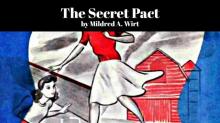 The Secret Pact
The Secret Pact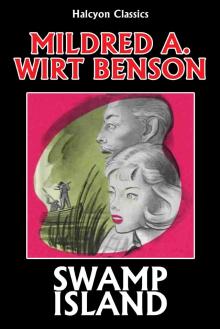 Swamp Island
Swamp Island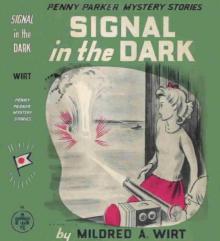 Signal in the Dark
Signal in the Dark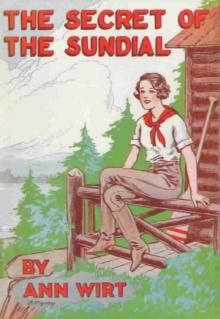 The Secret of the Sundial
The Secret of the Sundial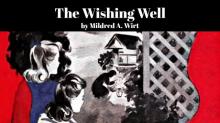 The Wishing Well
The Wishing Well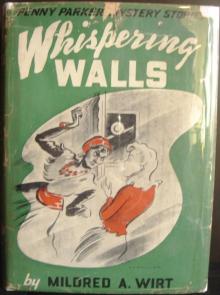 Whispering Walls
Whispering Walls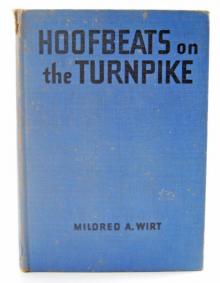 Hoofbeats on the Turnpike
Hoofbeats on the Turnpike The Deserted Yacht
The Deserted Yacht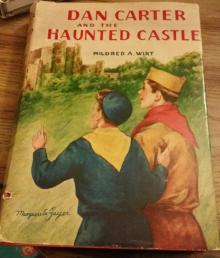 Dan Carter and the Haunted Castle
Dan Carter and the Haunted Castle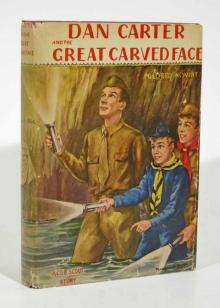 Dan Carter and the Great Carved Face
Dan Carter and the Great Carved Face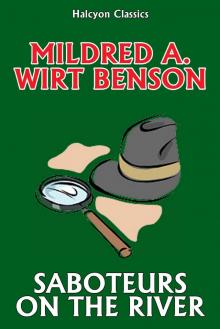 Saboteurs on the River
Saboteurs on the River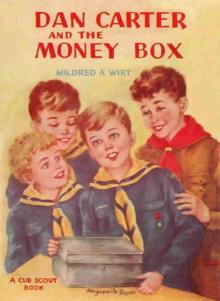 Dan Carter and the Cub Honor
Dan Carter and the Cub Honor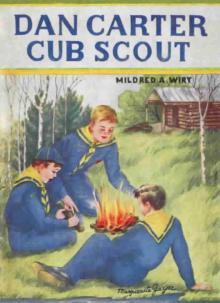 Dan Carter-- Cub Scout
Dan Carter-- Cub Scout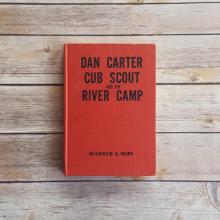 Dan Carter, Cub Scout, and the River Camp
Dan Carter, Cub Scout, and the River Camp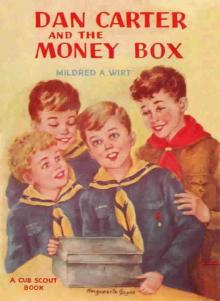 Dan Carter and the Money Box
Dan Carter and the Money Box The Girl Detective Megapack: 25 Classic Mystery Novels for Girls
The Girl Detective Megapack: 25 Classic Mystery Novels for Girls